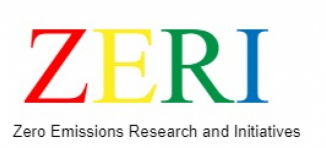Zero Emissions Research & Initiatives (ZERI) is a global network of creative minds seeking solutions to world challenges. The common vision shared by the members of the ZERI family is to view waste as resource and seek solutions using nature's design principles as inspiration.
The ZERI Foundation serves as an antenna in the world economy identifying the high growth industries of the next decade. When there is a crisis, many businesses suffer, but some thrive. Which are the ones that are the job providers of the future? Which are the technologies that will change the business models? With contacts on four continents, with over 50 projects that have demonstrated over the past 15 years where the opportunities are, ZERI offers insights to government on which sectors to attract, to companies which market niches to focus on, and to communities how to secure the continued build-up of social capital.
THE PROJECTS
There are more and more ZERI systems being developed around the world; these systems are complex and non-linear, which is the answer behind their creativity and success. We are working on featuring more and more of the 60+ existing projects on this website...stay tuned for more to come! Some are just an idea, some have a clear vision, others have moved towards pilot stage and some are fully developed and ready for turning into megaprojects. And some...have failed. It is from these that we learn most.
"Zero Emissions Research and Initiatives (ZERI) was established by Gunter Pauli in 1994 at the United Nations University (UNU) with the support of the Japanese Government. Three years before the Kyoto Protocol was agreed upon in 1997, Pauli directed a team of scientists to design a new business model that operates without emissions and without waste. Inspired by the way ecosystems work, the research initiative proposed to cascade nutrients, materials and energy so that our production and consumption system uses all that is available. The principle of ZERI is that the only species capable of making something no one desires, is the human species.[clarification needed] In 1996, the United Nations Development Programme (UNDP) and Gunter Pauli decided to create the ZERI Foundation with the goal to translate the designs into pioneering experiences. Originally, ZERI was headquartered at UNDP in Geneva, and later at IUCN in Gland. However, by 2008 the members decided to convert the central organization into a decentralized, time and place specific structures. By 2014, there are 34 project offices around the world. Emphasizing the vast potential of such innovations, Gunter Pauli initiated The Blue Economy concept in 2009. The book was accepted on November 2, 2009 as a Report to the Club of Rome". - Source: Wikipedia.

